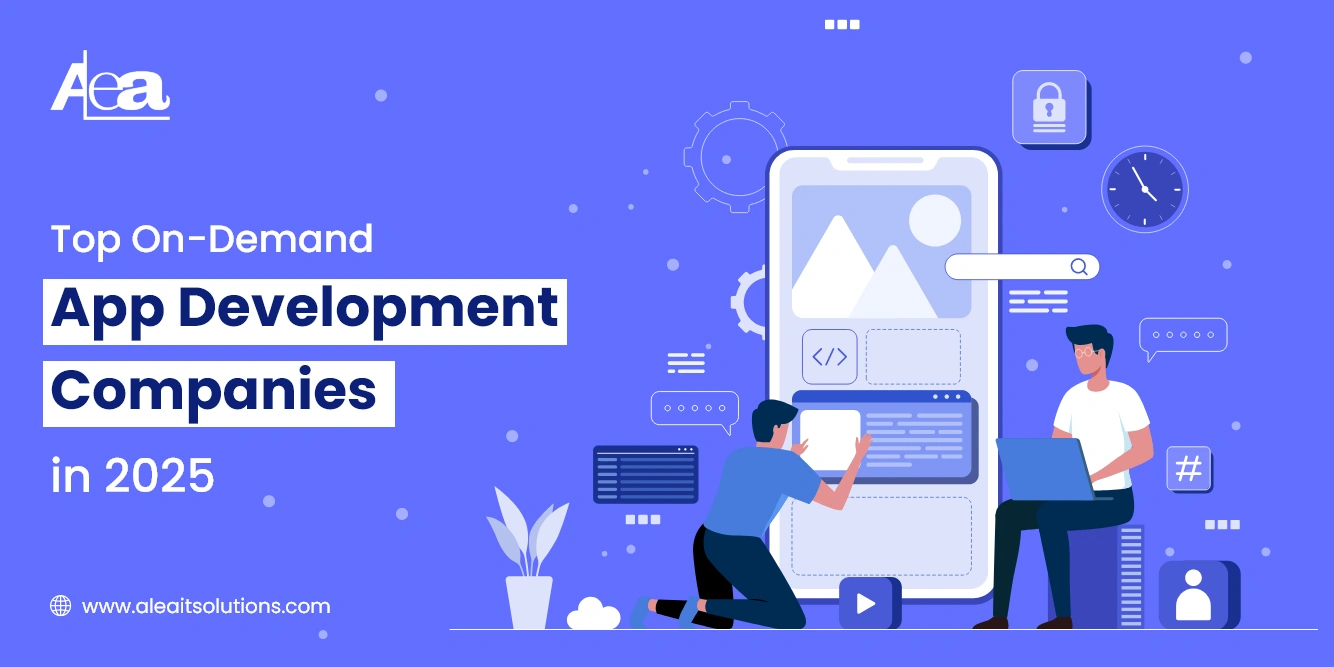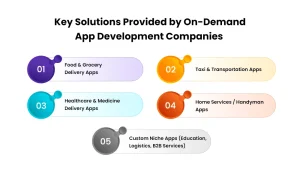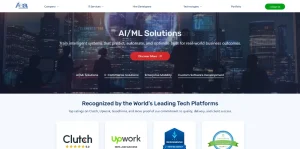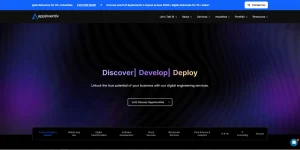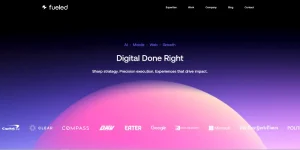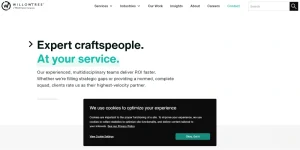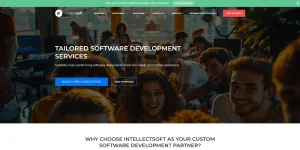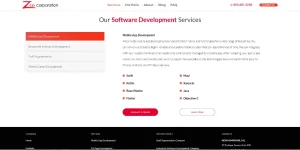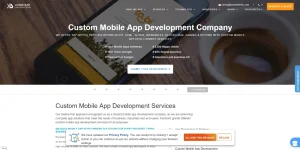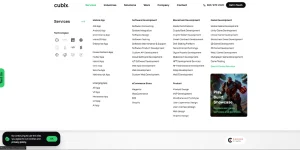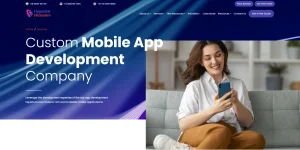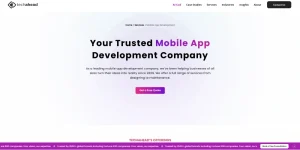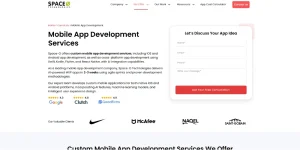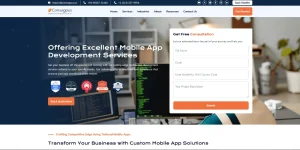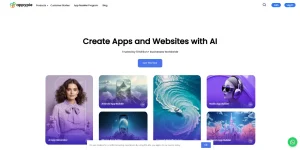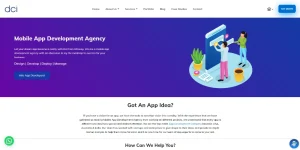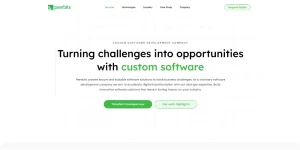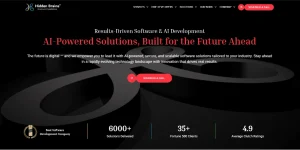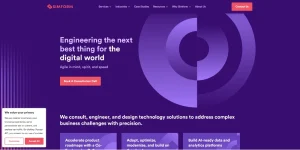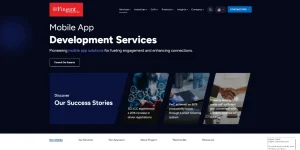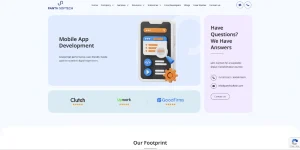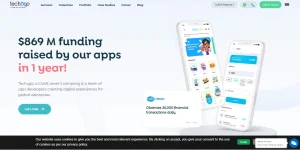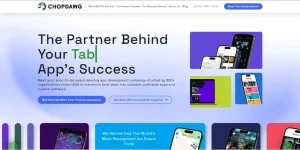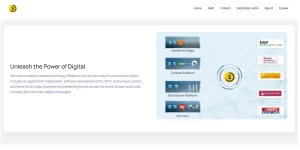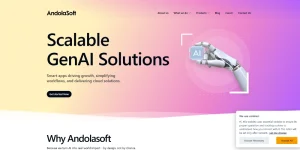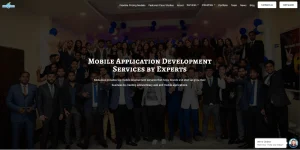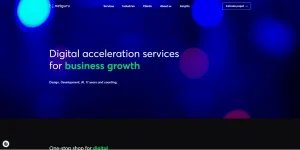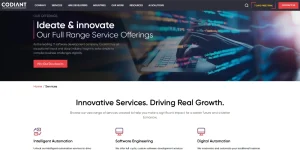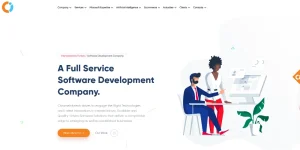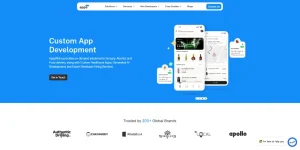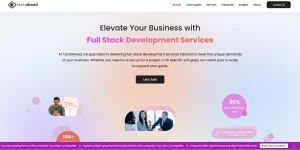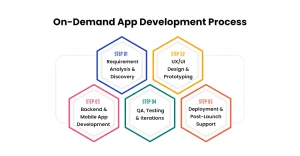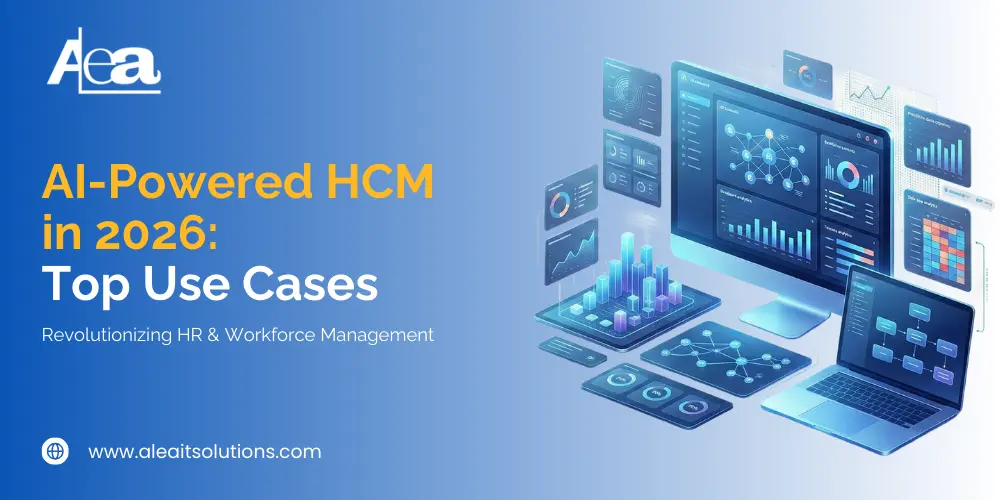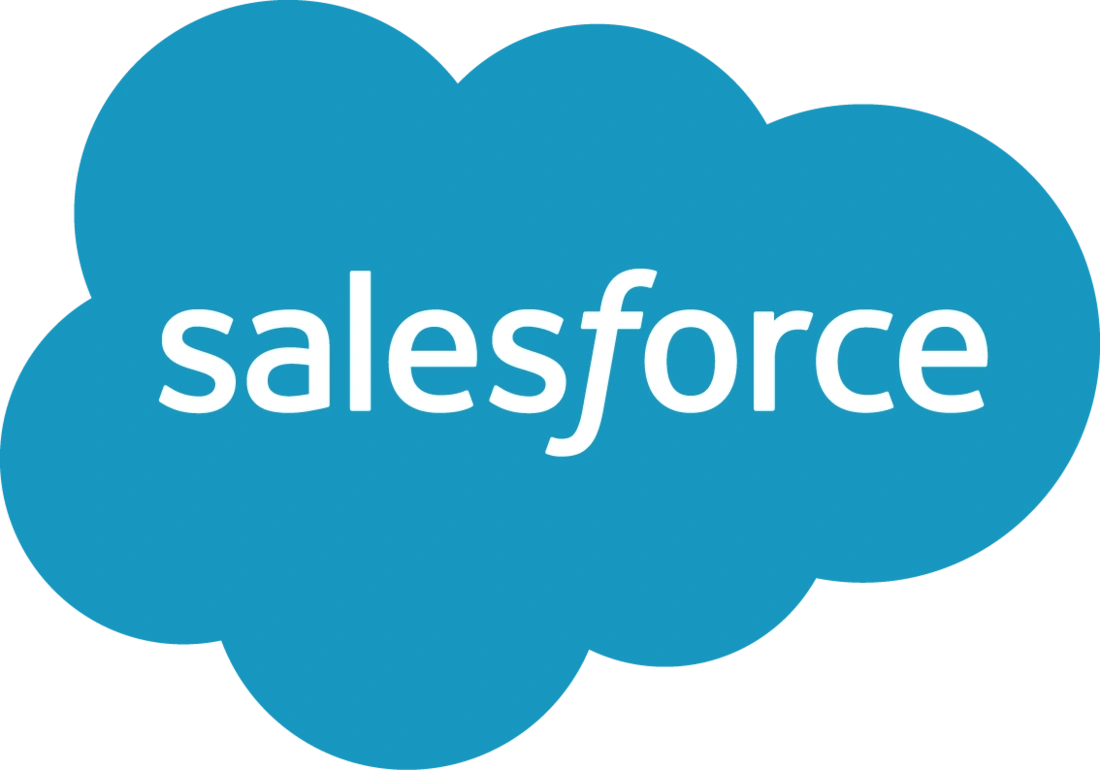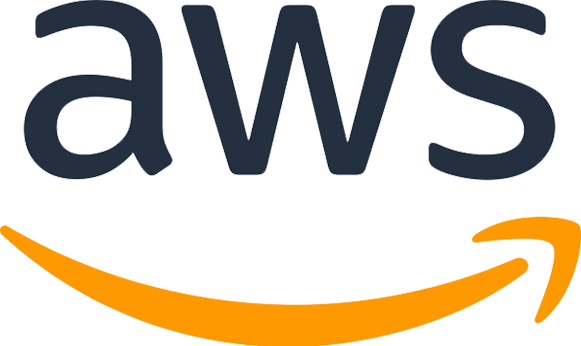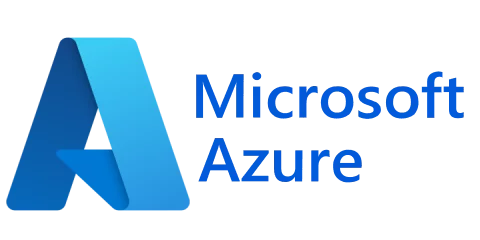The on-demand economy has fundamentally transformed how consumers access services and how businesses operate in the digital age. What started with pioneers like Uber and Airbnb has evolved into a massive ecosystem where instant gratification isn’t just expected it’s the standard.
In 2025, on-demand applications represent one of the most lucrative and rapidly expanding segments of the digital economy. The shift toward immediate service delivery has accelerated post-pandemic, with consumers increasingly preferring the convenience of accessing services at their fingertips. From food delivery and transportation to healthcare and home services, on demand solutions have penetrated virtually every industry vertical.
The rise of On Demand App Development has created unprecedented opportunities for startups and enterprises alike. Companies that once required physical storefronts and complex logistics networks can now launch with minimal overhead, connecting service providers directly with consumers through sophisticated mobile platforms.
This transformation has also fuelled the growth of specialized on demand app development services, with companies investing heavily in building robust, scalable platforms that can handle the complexities of real-time matching, dynamic pricing, and multi-sided marketplaces.
The demand for these specialized development capabilities has created a thriving ecosystem of expert development partners who understand the unique technical and business challenges of on-demand platforms.
What is On-Demand App Development?
On-demand app development refers to the creation of mobile and web applications that enable users to access products or services instantly, whenever and wherever they need them. Unlike traditional mobile app development services that might focus on static content or one-way interactions, on-demand applications facilitate real-time connections between service providers and consumers.
These applications typically feature three core components: a customer-facing app for placing orders or requests, a service provider app for fulfilling those requests, and an administrative dashboard for managing the entire ecosystem. The magic happens in the sophisticated backend systems that handle real-time matching, GPS tracking, payment processing, and communication between all parties.
The fundamental difference between on-demand apps and traditional applications lies in their dynamic nature. While a typical e-commerce app might allow users to browse and purchase products for later delivery, on-demand platforms orchestrate immediate service fulfilment. This requires complex algorithms for matching supply with demand, optimizing routes and resources, and managing real-time inventory or service availability.
Popular examples include Uber for transportation, DoorDash for food delivery, Instacart for grocery shopping, TaskRabbit for home services, and Teladoc for healthcare consultations. Each platform demonstrates how on-demand technology can disrupt traditional service models by eliminating friction and enabling instant access.
Mobile App & On-Demand Market Stats 2026
Explosive Growth of the On-Demand Economy
- The global mobile app development market revenue is set to grow from USD 302.1 billion in 2026 to USD 753.34 billion by 2033, at a CAGR of 12.1%.
- Investment in on-demand apps and websites is projected to hit USD 335 billion by 2026.
- This growth highlights how critical on-demand platforms have become for businesses competing in the digital economy.
Sector-Wise Market Priorities
- Transportation services remain the largest segment, with ridesharing, logistics, and last-mile delivery dominating the market.
- Food delivery is the second largest, fuelled by restaurant partnerships, grocery delivery, and cloud kitchens.
- Healthcare apps are booming, with the market projected to hit USD 43.13 billion by 2026, compared to just USD 2 billion in 2015.
Read Also: Mobile App Statistics & Trends
How Do On-Demand Apps Work?
User-Side Flow (Request → Booking → Payment → Tracking)
The user experience in on-demand applications follows a carefully orchestrated flow designed to minimize friction while maximizing convenience. Users typically begin by browsing available services or entering specific requests through intuitive interfaces that leverage location data and user preferences.
The booking process involves real-time availability checking, automated matching with suitable service providers, and transparent pricing that often includes dynamic pricing based on demand and supply conditions. Advanced platforms use machine learning algorithms to predict user preferences and streamline the selection process.
Payment integration represents a critical component, with most platforms supporting multiple payment methods including digital wallets, credit cards, and increasingly, cryptocurrency options. The seamless payment experience eliminates the friction of cash transactions and enables automatic billing for subscription-based services.
Real-time tracking capabilities keep users informed throughout the service delivery process. GPS integration, push notifications, and in-app messaging create transparency and trust while reducing customer service inquiries about order status.
Service Provider Flow (Accept → Deliver → Earn)
Service providers interact with on-demand platforms through dedicated interfaces designed to optimize their earning potential and service efficiency. The flow typically begins with accepting requests based on location, capacity, and preference settings that providers can customize.
Sophisticated routing and optimization algorithms help service providers maximize their efficiency by suggesting optimal routes, batching compatible requests, and predicting demand patterns. This technology support enables service providers to earn more while delivering better service to customers.
The platform handles payment processing, tax reporting, and performance analytics, reducing administrative overhead for service providers. Many platforms also provide tools for service providers to build their reputation through customer ratings and reviews, creating incentives for quality service delivery.
Admin-Side Control (Dispatching, Monitoring, Analytics)
The administrative layer of on-demand platforms represents the most complex component, requiring sophisticated software systems to manage real-time operations across potentially thousands of simultaneous transactions.
Dispatching algorithms must consider multiple variables including location proximity, service provider capacity, customer preferences, and business optimization goals like minimizing wait times or maximizing revenue per transaction. Machine learning systems continuously improve these algorithms based on historical performance data.
Monitoring capabilities provide real-time visibility into platform performance, including service provider availability, customer satisfaction metrics, and operational efficiency indicators. This data enables proactive management of service quality and rapid response to issues.
Analytics dashboards provide insights into business performance, market trends, and opportunities for optimization. Advanced platforms use predictive analytics to forecast demand, optimize pricing strategies, and guide business development decisions.
Key Solutions Provided by On-Demand App Development Companies
1. Food & Grocery Delivery Apps
Food delivery represents one of the most mature and competitive segments of the on-demand market. Leading app development services in this space focus on creating platforms that handle complex logistics including restaurant partnerships, delivery driver management, and customer experience optimization.
Key features typically include menu management systems, real-time order tracking, integrated payment processing, rating and review systems, and sophisticated routing algorithms for delivery optimization. Advanced platforms also incorporate features like group ordering, scheduled deliveries, and loyalty program management.
Grocery delivery platforms add additional complexity with inventory management, substitution handling, and perishable goods logistics. These platforms often integrate with point-of-sale systems and supply chain management tools to ensure accurate inventory representation and efficient fulfilment.
2. Taxi & Transportation Apps
Transportation platforms require robust real-time matching algorithms that consider factors like proximity, driver availability, traffic conditions, and customer preferences. These systems must handle surge pricing, route optimization, and safety features including driver verification and trip tracking.
Modern transportation apps often expand beyond basic ridesharing to include features like scheduled rides, multi-stop trips, corporate account management, and integration with public transportation systems. Some platforms have evolved into comprehensive mobility solutions that include bike-sharing, scooter rentals, and delivery services.
3. Healthcare & Medicine Delivery Apps
Healthcare on-demand applications must navigate complex regulatory requirements while delivering critical services. Telemedicine platforms require HIPAA-compliant communication systems, secure medical record storage, and integration with healthcare provider systems.
Medicine delivery apps focus on prescription verification, controlled substance handling, insurance integration, and cold-chain logistics for temperature-sensitive medications. These platforms often include features like medication reminders, refill automation, and pharmacy network management.
4. Home Services / Handyman Apps
Home services platforms connect consumers with skilled professionals for tasks ranging from cleaning and maintenance to complex home improvement projects. These apps require sophisticated vetting systems for service providers, insurance and bonding verification, and project management tools for complex jobs.
Scheduling systems must handle recurring services, emergency requests, and multi-day projects. Quality assurance features include photo documentation, customer reviews, and dispute resolution systems to maintain trust between consumers and service providers.
5. Custom Niche Apps (Education, Logistics, B2B Services)
The flexibility of on-demand platforms has enabled expansion into specialized verticals including educational services, professional consulting, legal services, and B2B logistics. These niche applications often require industry-specific features and compliance capabilities.
Educational platforms might include features like instructor verification, curriculum management, and progress tracking. B2B logistics platforms focus on load matching, freight tracking, and supply chain integration. Professional services platforms emphasize credential verification, project collaboration tools, and billing management.
Benefits of On-Demand Apps for Startups & Enterprises
1. Time & Cost Savings
On-demand platforms eliminate many traditional operational overhead costs associated with physical infrastructure, inventory management, and direct employment of service providers. Startups can launch with minimal capital investment while accessing established networks of service providers.
For enterprises, on-demand solutions can reduce internal resource requirements for non-core activities. Companies can access specialized services without maintaining full-time staff or complex vendor management processes.
The automation inherent in on-demand platforms reduces manual processing costs and human error while enabling 24/7 operations without proportional increases in staffing costs.
2. Improved Customer Experience
On-demand platforms excel at customer experience by eliminating common friction points in traditional service delivery. Features like real-time tracking, transparent pricing, and instant feedback mechanisms create trust and satisfaction that drives customer loyalty.
The data collected through on-demand platforms enables personalization that improves over time. Machine learning algorithms can predict customer preferences, suggest relevant services, and optimize delivery routes based on individual customer patterns.
Customer service capabilities are enhanced through integrated communication tools, automated status updates, and comprehensive order histories that enable quick issue resolution.
3. Revenue Opportunities & Business Growth
The marketplace model creates multiple monetization opportunities beyond traditional service fees. Advertising revenue from service providers, premium subscription services, and data licensing can provide additional revenue streams.
Geographic expansion becomes more feasible with on-demand platforms because the technology infrastructure can be replicated in new markets without rebuilding physical assets. This scalability enables rapid market entry and growth.
Dynamic pricing capabilities allow businesses to optimize revenue based on real-time demand and supply conditions, potentially increasing revenue per transaction compared to fixed pricing models.
4. Operational Efficiency
On-demand platforms generate detailed operational data that enables continuous optimization of service delivery, resource allocation, and business processes. This data-driven approach often reveals inefficiencies that would be difficult to identify in traditional operations.
Automated matching and routing algorithms optimize resource utilization while reducing the manual coordination required to manage complex service networks. This automation enables businesses to handle larger transaction volumes without proportional increases in operational overhead.
Quality control systems built into on-demand platforms, including ratings, reviews, and performance tracking, create incentives for service excellence while providing mechanisms for continuous improvement.
Read Also: Key Consideration When Building a Mobile Applications
Comparison Table of Top On-Demand App Development Companies
| Company | Founded | Location | Team Size | Avg Rate | Primary Industries | Notable Clients |
| Quantiphi | 2013 | Massachusetts | 500+ | $150-200 | Healthcare, Logistics | Fortune 500 |
| Appinventiv | 2015 | New York | 1000+ | $100-150 | Food, Entertainment | Domino’s, KFC |
| Fueled | 2007 | New York | 100+ | $175-250 | Consumer Apps | Verizon, MGM |
| WillowTree | 2007 | Virginia | 500+ | $150-200 | Enterprise | Fox Sports, J&J |
| Intellectsoft | 2007 | California | 300+ | $100-175 | Enterprise, Logistics | Eurostar, Harley |
| Zco Corporation | 1989 | New Hampshire | 200+ | $100-150 | Healthcare, Enterprise | Dartmouth, Brookstone |
| Konstant Infosolutions | 2003 | California | 180+ | $50-100 | Education, Automotive | Stanford, Puma |
| Cubix | 2008 | Florida | 200+ | $75-125 | Gaming, Entertainment | Disney, Whizpool |
| TechAhead | 2009 | California | 150+ | $75-150 | Healthcare | LA Care, NHS |
| Space-O Technologies | 2010 | Texas | 100+ | $50-125 | IoT, AR/VR | Vodafone, Bacardi |
| AleaIT Solutions | 2018 | Multiple | 120+ | $80-140 | All Industries | Healthcare, Food Delivery |
List of Top On-Demand App Development Companies 2026
1. AleaIT Solutions
AleaIT Solutions stands as a beacon of innovation in the rapidly evolving on-demand app development landscape. Founded with a vision to bridge the gap between cutting-edge technology and practical business solutions, this California-based firm has carved out a distinctive niche in the competitive U.S. startup ecosystem.
Their holistic approach combines deep technical expertise with strategic business acumen, enabling them to deliver solutions that don’t just meet current needs but anticipate future market demands.
What sets AleaIT apart is their commitment to creating AI-powered platforms that grow with their clients’ businesses, making them an invaluable long-term technology partner.
Location: California, USA
Clutch Rating: 4.9/5
Hourly Cost: $80–150
Strength: Full-cycle on-demand app development with AI integration
Specializations: Mobile app development, AI/ML solutions, cross-platform scalability
Average Project Size: $100,000 – $500,000
Key Clients/Projects: U.S.-based startups, logistics & healthcare platforms
Why They Stand Out: AleaIT bridges the gap between technology and business outcomes, delivering apps that are not just functional but strategically aligned with client growth.
Testimonial: “AleaIT helped us scale from an MVP to a fully functional on-demand platform, reducing our time-to-market by 40% while keeping costs under control.”
2. Appinventiv
In the world of high-stakes, high-volume on-demand platforms, Appinventiv has established itself as the gold standard for enterprise-grade solutions. This New York-based powerhouse has built its reputation on one fundamental promise: delivering platforms that never break, no matter the scale.
Their impressive portfolio includes partnerships with global food giants like Domino’s, KFC, and Pizza Hut, where system reliability isn’t just important it’s mission critical. Appinventiv’s technical architecture expertise ensures that whether you’re handling 50 orders or 50,000 orders per day, your platform performs flawlessly.
Their end-to-end development approach means clients receive not just an app, but a complete ecosystem designed for sustained growth and operational excellence.
Location: New York, USA
Clutch Rating: 4.7/5
Hourly Cost: $100-150
Strength: End-to-end development with strong focus on scalability
Specializations: Multi-platform development, marketplace solutions, real-time applications
Average Project Size: $150,000 – $400,000
Key Clients/Projects: Domino’s, KFC, Pizza Hut mobile platforms
Why They Stand Out: Proven track record with major food delivery brands and expertise in handling high-volume, real-time transactions with robust backend architecture.
Testimonial: “Appinventiv delivered a food delivery platform that handles 50,000+ daily orders with 99.9% uptime. Their technical expertise exceeded our expectations.”
3. Fueled
Fueled operates at the intersection of technology and artistry, where exceptional design meets flawless functionality. This New York-based studio has built its reputation on a simple but powerful philosophy: great apps aren’t just about what they do, but how they make users feel.
Their design-first approach has attracted premium brands like Verizon, MGM Resorts, and QuizUp, who understand that in today’s competitive landscape, user experience is the ultimate differentiator.
Fueled doesn’t just build apps; they craft digital experiences that users love to engage with, return to, and recommend to others. Their premium positioning reflects their commitment to delivering solutions that don’t just meet market standards they set them.
Location: New York, USA
Clutch Rating: 4.9/5
Hourly Cost: $175-250
Strength: Premium design and user experience focus
Specializations: iOS and Android development, UX/UI design, startup platforms
Average Project Size: $200,000 – $600,000
Key Clients/Projects: Verizon, MGM Resorts, QuizUp
Why They Stand Out: Fueled excels at creating visually stunning, user-friendly interfaces that drive engagement and retention in competitive on-demand markets.
Testimonial: “Fueled’s design expertise helped us achieve 40% higher user retention compared to our previous app version.”
4. WillowTree
WillowTree represents the pinnacle of enterprise-grade app development, where strategic thinking meets technical excellence. Based in Virginia, this company has mastered the complex art of integrating cutting-edge on-demand capabilities into existing enterprise ecosystems without disrupting established workflows.
Their client roster reads like a Fortune 500 directory National Geographic, Fox Sports, Johnson & Johnson organizations that demand not just innovation, but innovation that seamlessly integrates with complex business operations.
WillowTree’s approach goes beyond app development; they’re digital transformation partners who understand that successful enterprise solutions must balance innovation with operational stability. Their expertise lies in making the complex simple and the innovative practical.
Location: Virginia, USA
Clutch Rating: 4.8/5
Hourly Cost: $150-200
Strength: Enterprise-grade development and digital strategy
Specializations: Enterprise mobility, digital transformation, platform modernization
Average Project Size: $300,000 – $1,000,000
Key Clients/Projects: National Geographic, Fox Sports, Johnson & Johnson
Why They Stand Out: Strong enterprise focus with proven ability to integrate on-demand capabilities into existing business systems and processes.
Testimonial: “WillowTree seamlessly integrated our on-demand service platform with our existing enterprise systems, enabling unified operations across all channels.”
5. Intellectsoft
Intellectsoft stands at the forefront of the technology revolution, specializing in emerging technologies that are reshaping the digital landscape. This California-based consultancy has positioned itself as the go-to partner for organizations looking to leverage blockchain, IoT, and other cutting-edge technologies to create competitive advantages.
Their impressive client portfolio includes brands like Eurostar, Harley-Davidson, and Universal Pictures companies that aren’t just adopting new technologies but pioneering their practical applications.
Intellect soft’s strength lies in their ability to translate complex technological possibilities into tangible business benefits, ensuring that innovative features enhance rather than complicate the user experience. They don’t just implement technology; they architect the future of on-demand platforms.
Location: California, USA
Clutch Rating: 4.6/5
Hourly Cost: $100-175
Strength: Complex system integration and emerging technologies
Specializations: Blockchain integration, IoT connectivity, enterprise solutions
Average Project Size: $200,000 – $700,000
Key Clients/Projects: Eurostar, Harley-Davidson, Universal Pictures
Why They Stand Out: Expertise in integrating cutting-edge technologies like blockchain and IoT into on-demand platforms for enhanced security and functionality.
Testimonial: “Intellectsoft’s blockchain integration provided the transparency and security our logistics platform needed to build trust with enterprise clients.”
6. Zco Corporation
With over three decades in the software development industry, Zco Corporation represents institutional knowledge and proven reliability in an often volatile technology landscape. This New Hampshire-based company has witnessed the evolution of software development from its earliest days to today’s sophisticated on-demand platforms, accumulating invaluable experience along the way.
Their approach emphasizes long-term partnerships over quick projects, understanding that truly successful platforms require ongoing evolution and refinement. Zco’s client relationships often span multiple years, with companies like Dartmouth-Hitchcock, Brookstone, and Boston Scientific relying on their consistent delivery and deep understanding of business needs.
In a world of rapid technological change, Zco provides the stability and expertise that growing businesses need to navigate digital transformation successfully.
Location: New Hampshire, USA
Clutch Rating: 4.5/5
Hourly Cost: $100-150
Strength: Long-term partnerships and comprehensive development services
Specializations: Custom software development, mobile applications, database design
Average Project Size: $150,000 – $500,000
Key Clients/Projects: Dartmouth-Hitchcock, Brookstone, Boston Scientific
Why They Stand Out: Over 30 years of experience with strong focus on building long-term client relationships and providing ongoing platform evolution.
Testimonial: “Zco has been our development partner for three years, continuously enhancing our platform based on market feedback and business growth.”
7. Konstant Infosolutions
Konstant Infosolutions has mastered the delicate balance between quality and affordability, making sophisticated on-demand app development accessible to startups and growing businesses.
This California-based company leverages a global delivery model to provide enterprise-quality solutions at startup-friendly prices, without compromising on technical excellence or project delivery timelines. Their client success stories include collaborations with prestigious brands like Stanford University, Puma, and Mercedes-Benz, demonstrating their ability to deliver solutions that meet diverse requirements across various industries.
Konstant’s strength lies in their agile development approach and rapid prototyping capabilities, enabling startups to validate their concepts quickly and cost-effectively. They understand that for many startups, speed to market can be the difference between success and failure.
Location: California, USA
Clutch Rating: 4.4/5
Hourly Cost: $50-100
Strength: Cost-effective development with global delivery model
Specializations: Cross-platform development, rapid prototyping, startup solutions
Average Project Size: $75,000 – $300,000
Key Clients/Projects: Stanford University, Puma, Mercedes-Benz
Why They Stand Out: Offers competitive pricing while maintaining quality through distributed development teams and agile methodologies.
Testimonial: “Konstant delivered our MVP ahead of schedule and under budget, enabling us to secure Series A funding based on the platform demonstration.”
8. Cubix
Cubix brings a unique gaming and entertainment perspective to on-demand app development, understanding that today’s users expect more than just functionality they want engagement, excitement, and experiences that feel rewarding.
This Florida-based company has developed expertise in incorporating real-time interaction and gamification elements that transform ordinary service apps into compelling user experiences. Their work with clients like Whizpool, Productivity Future Vision, and Disney demonstrates their ability to create platforms that don’t just serve users but delight them.
Cubix recognizes that in the crowded on-demand marketplace, user retention often depends on creating emotional connections through interactive design and engaging user experiences. Their approach turns routine transactions into enjoyable interactions.
Location: Florida, USA
Clutch Rating: 4.6/5
Hourly Cost: $75-125
Strength: Gaming and entertainment platform expertise
Specializations: Real-time applications, gaming platforms, entertainment solutions
Average Project Size: $100,000 – $400,000
Key Clients/Projects: Whizpool, Productivity Future Vision, Disney
Why They Stand Out: Unique expertise in real-time interaction and gamification elements that enhance user engagement in on-demand platforms.
Testimonial: “Cubix’s gamification features increased user engagement by 60% and reduced churn by 35% in our fitness services platform.”
9. Hyperlink InfoSystem
Hyperlink InfoSystem specializes in the critical early stages of startup development, where speed, efficiency, and rapid iteration can determine a venture’s ultimate success.
This New York-based company has built its reputation on helping entrepreneurs and early-stage companies quickly validate their on-demand business concepts through rapid MVP development and iterative improvement processes. They understand that startups often operate under tight timelines and limited budgets, requiring development partners who can move fast without sacrificing quality.
Hyperlink’s approach focuses on creating functional prototypes that can be used for market testing, investor presentations, and user feedback collection. Their streamlined development process enables startups to enter the market quickly and begin the crucial process of learning from real user interactions.
Location: New York, USA
Clutch Rating: 4.3/5
Hourly Cost: $50-100
Strength: Rapid development and deployment capabilities
Specializations: Quick turnaround projects, MVP development, startup solutions
Average Project Size: $50,000 – $250,000
Key Clients/Projects: Various startups and SMEs
Why They Stand Out: Focuses on helping startups quickly validate their on-demand business concepts with rapid MVP development and iterative improvement processes.
Testimonial: “Hyperlink helped us launch our pilot market in just 12 weeks, enabling rapid market validation and investor presentations.”
10. TechAhead
TechAhead operates in one of the most challenging and regulated sectors of technology development: healthcare and compliance-driven industries. This California-based company has developed deep expertise in navigating the complex requirements of HIPAA compliance, healthcare regulations, and other industry-specific standards that can make or break on-demand healthcare platforms.
Their work with prestigious clients like LA Care Health Plan and NHS demonstrates their ability to deliver solutions that meet the highest standards of security, privacy, and regulatory compliance.
TechAhead understands that in healthcare, there’s no margin for error platforms must be not only functional and user-friendly but also completely secure and compliant with evolving regulatory requirements. They serve as trusted partners for organizations bringing healthcare services into the digital age.
Location: California, USA
Clutch Rating: 4.5/5
Hourly Cost: $75-150
Strength: Healthcare and regulated industry expertise
Specializations: HIPAA compliance, healthcare platforms, regulated industries
Average Project Size: $150,000 – $500,000
Key Clients/Projects: LA Care Health Plan, NHS, various healthcare startups
Why They Stand Out: Deep understanding of healthcare regulations and compliance requirements for medical on-demand services.
Testimonial: “TechAhead’s HIPAA-compliant telemedicine platform enabled us to expand telehealth services while maintaining full regulatory compliance.”
11. Space-O Technologies
Space-O Technologies positions itself at the cutting edge of digital innovation, specializing in emerging technologies that are reshaping how users interact with on-demand platforms. This Texas-based company has developed particular expertise in AR/VR capabilities and IoT integration, understanding that tomorrow’s successful platforms will need to leverage these technologies to create differentiated user experiences.
Their work with major brands like Vodafone and Bacardi demonstrates their ability to implement complex technological solutions in real-world business environments. Space-O recognizes that as on-demand services become increasingly commoditized, success will depend on creating unique value propositions through innovative technology applications.
Their focus on comprehensive digital transformation services helps clients not just build platforms but reimagine entire business models.
Location: Texas, USA
Clutch Rating: 4.4/5
Hourly Cost: $50-125
Strength: Comprehensive digital transformation services
Specializations: IoT integration, AR/VR capabilities, emerging technologies
Average Project Size: $100,000 – $400,000
Key Clients/Projects: Vodafone, Bacardi, various enterprise clients
Why They Stand Out: Innovation in incorporating emerging technologies like AR/VR and IoT into on-demand platforms for enhanced user experiences.
Testimonial: “Space-O’s AR integration allowed our home services platform to provide virtual consultations, reducing unnecessary site visits by 40%.”
12. Consagous Technologies
Consagous Technologies has mastered the art of cross-platform development, recognizing that in today’s diverse mobile ecosystem, successful on-demand platforms must deliver consistent experiences across all devices and operating systems.
This New York-based company specializes in React Native, Flutter, and other hybrid development technologies that enable businesses to reach maximum audiences while optimizing development costs and timelines.
Their work with Fortune 500 companies and innovative startups demonstrates their ability to balance technical excellence with practical business considerations. Consagous understands that cross-platform development isn’t just about code reuse it’s about creating unified user experiences that feel native on every device while maintaining the efficiency and cost benefits of shared development efforts.
Location: New York, USA
Clutch Rating: 4.3/5
Hourly Cost: $60-120
Strength: Cross-platform development expertise
Specializations: React Native, Flutter, hybrid development
Average Project Size: $75,000 – $300,000
Key Clients/Projects: Various Fortune 500 companies, startups
Why They Stand Out: Efficiency in cross-platform development that reduces costs while maintaining native app performance for on-demand applications.
Testimonial: “Consagous’s cross-platform approach saved us 40% on development costs while delivering native performance on both iOS and Android.”
13. Appy Pie
Appy Pie democratizes app development through innovative no-code and low-code platforms, making on-demand app creation accessible to entrepreneurs and small businesses who may not have extensive technical resources or large development budgets.
This Virginia-based company has revolutionized the development landscape by enabling rapid prototyping and quick market entry for simple on-demand concepts. Their approach is particularly valuable for market validation scenarios, where businesses need to test concepts quickly and cost-effectively before committing to full-scale development.
Appy Pie understands that not every great business idea requires complex custom mobile app development sometimes speed to market and rapid iteration are more important than technical sophistication. They provide the tools and platforms that enable entrepreneurial vision to become market reality.
Location: Virginia, USA
Clutch Rating: 4.2/5
Hourly Cost: $25-75
Strength: No-code/low-code development platforms
Specializations: Rapid prototyping, small business solutions, DIY platforms
Average Project Size: $25,000 – $100,000
Key Clients/Projects: Various small businesses and startups
Why They Stand Out: Enables rapid development for simple on-demand concepts using low-code platforms, ideal for market validation and small-scale launches.
Testimonial: “Appy Pie helped us launch our neighborhood services app in just 6 weeks for market testing before investing in full custom development.”
14. Dot Com Infoway
Dot Com Infoway brings deep e-commerce and marketplace expertise to the on-demand platform space, understanding the complex dynamics of multi-vendor environments, transaction processing, and marketplace operations.
This New York-based company has developed specialized knowledge in creating platforms that support multiple service providers, complex payment flows, and sophisticated vendor management systems.
Their experience in e-commerce translates perfectly to on-demand marketplaces, where similar challenges around vendor onboarding, transaction processing, and multi-party interactions require careful technical architecture and business process design.
Dot Com Infoway recognizes that successful on-demand platforms often operate as sophisticated marketplaces, requiring expertise in both technology and marketplace dynamics to create sustainable business models.
Location: New York, USA
Clutch Rating: 4.4/5
Hourly Cost: $50-100
Strength: E-commerce and marketplace development
Specializations: Marketplace platforms, e-commerce integration, multi-vendor systems
Average Project Size: $100,000 – $350,000
Key Clients/Projects: Various e-commerce and marketplace clients
Why They Stand Out: Strong marketplace development experience with focus on multi-vendor platforms and complex transaction processing.
Testimonial: “Dot Com Infoway’s marketplace expertise enabled seamless vendor onboarding and management for our multi-service platform.”
Read Also: Top 50+ E-commerce Business Ideas
15. Peerbits
Peerbits stands at the forefront of financial technology innovation, specializing in blockchain and fintech integration that enables secure, transparent, and globally accessible on-demand platforms. This Georgia-based company has developed cutting-edge expertise in cryptocurrency payments, blockchain security, and advanced fintech solutions that are reshaping how on-demand services handle transactions and build trust with users.
Their work with various fintech startups and cryptocurrency platforms demonstrates their ability to navigate the complex technical and regulatory landscape of financial technology.
Peerbits understands that as on-demand services expand globally, traditional payment systems often become limitations, and innovative fintech solutions can provide competitive advantages through enhanced security, reduced transaction costs, and improved user experiences.
Location: Georgia, USA
Clutch Rating: 4.3/5
Hourly Cost: $60-120
Strength: Blockchain and fintech integration
Specializations: Cryptocurrency payments, blockchain security, fintech solutions
Average Project Size: $125,000 – $450,000
Key Clients/Projects: Various fintech startups, cryptocurrency platforms
Why They Stand Out: Cutting-edge expertise in integrating cryptocurrency payments and blockchain technology into on-demand platforms for enhanced security and global payment capabilities.
Testimonial: “Peerbits’ blockchain integration enabled secure, transparent transactions that built trust with our international user base.”
16. Hidden Brains
Hidden Brains operates as a comprehensive technology partner with the unique ability to scale development teams rapidly to meet aggressive project timelines and complex technical requirements.
This California-based company has built a reputation for handling large-scale, multi-faceted projects that require diverse technology expertise and significant development resources. Their strength lies in their ability to assemble and manage large development teams while maintaining quality standards and project coordination.
Hidden Brains understands that some on-demand platforms require extensive development resources to meet ambitious launch dates or handle complex integration requirements across multiple systems and technologies. Their enterprise-focused approach ensures that even the most demanding projects receive the attention and resources needed for successful completion.
Location: California, USA
Clutch Rating: 4.2/5
Hourly Cost: $40-90
Strength: Large-scale team capabilities and diverse technology expertise
Specializations: Enterprise solutions, cloud computing, AI/ML integration
Average Project Size: $100,000 – $400,000
Key Clients/Projects: Various enterprise clients across multiple industries
Why They Stand Out: Ability to scale teams quickly for large projects and deep expertise across multiple technology stacks for comprehensive platform development.
Testimonial: “Hidden Brains scaled their team to meet our aggressive timeline, delivering a complex multi-service platform that exceeded performance expectations.”
Read Also: Top Web Application Development Companies in California
17. Simform
Simform excels in modern web technologies and API development, specializing in creating scalable, cloud-native architectures that can handle the high-availability requirements of successful on-demand platforms.
This Texas-based company has developed particular expertise in microservices architecture, understanding that as on-demand platforms grow, they need technical architectures that can scale individual components independently. Their work with major brands like Subway and Mercedes-Benz demonstrates their ability to create robust backend systems that support high-volume, real-time operations.
Simform recognizes that modern on-demand platforms are complex ecosystems requiring sophisticated API design, efficient data processing, and scalable infrastructure. Their focus on cloud-native solutions ensures that platforms can grow efficiently while maintaining performance and reliability.
Location: Texas, USA
Clutch Rating: 4.6/5
Hourly Cost: $70-130
Strength: Modern web technologies and API development
Specializations: Microservices architecture, API development, cloud-native solutions
Average Project Size: $150,000 – $500,000
Key Clients/Projects: Subway, Mercedes-Benz, various tech startups
Why They Stand Out: Excellence in building scalable, cloud-native architectures that can handle the high-availability requirements of successful on-demand platforms.
Testimonial: “Simform’s microservices architecture enabled us to scale individual components independently, reducing infrastructure costs by 30%.”
18. Fingent
Fingent specializes in the complex challenge of integrating innovative on-demand capabilities with existing enterprise systems and workflows. This New York-based company has developed deep expertise in enterprise integration, understanding that many successful on-demand initiatives must work seamlessly with established business systems, CRM platforms, and operational processes.
Their work with major corporations like Toyota, Johnson Controls, and Allstate demonstrates their ability to navigate the technical and organizational challenges of enterprise-level system integration.
Fingent recognizes that for many enterprises, the success of on-demand initiatives depends not just on creating great user experiences, but on ensuring that new platforms enhance rather than disrupt existing business operations. Their custom development approach ensures that innovative capabilities are delivered within practical business constraints.
Location: New York, USA
Clutch Rating: 4.5/5
Hourly Cost: $80-140
Strength: Custom software development and system integration
Specializations: Enterprise integration, custom development, legacy system modernization
Average Project Size: $200,000 – $600,000
Key Clients/Projects: Toyota, Johnson Controls, Allstate
Why They Stand Out: Strong enterprise focus with proven ability to integrate on-demand capabilities into existing business systems and workflows.
Testimonial: “Fingent successfully integrated our on-demand service platform with our existing CRM and billing systems, creating a unified operational view.”
19. Prompt Softech
Prompt Softech has mastered agile development methodologies, understanding that in today’s rapidly changing market environment, the ability to iterate quickly and respond to user feedback can be more valuable than getting everything perfect on the first try.
This California-based company specializes in helping startups and growth-stage companies navigate the uncertain early stages of product development, where business models may evolve and market feedback drives significant platform changes.
Their agile approach enables rapid iteration and feature evolution based on real user behavior data and market feedback. Prompt Softech recognizes that successful on-demand platforms are rarely built according to initial specifications they evolve through continuous learning and adaptation. Their development process is designed to embrace change rather than resist it.
Location: California, USA
Clutch Rating: 4.4/5
Hourly Cost: $60-110
Strength: Agile development and rapid iteration
Specializations: Agile methodologies, rapid prototyping, startup solutions
Average Project Size: $100,000 – $350,000
Key Clients/Projects: Various startups and growth-stage companies
Why They Stand Out: Agile development approach that enables rapid iteration and feature evolution based on market feedback and user behavior data.
Testimonial: “Prompt Softech’s agile approach allowed us to pivot our business model twice during development, ultimately finding the right market fit.”
20. ValueCoders
ValueCoders has perfected the global delivery model, providing high-quality on-demand platform development at competitive prices through efficient offshore development practices and established quality processes
This New York-based company understands that cost optimization is often critical for startups and growing businesses, but never at the expense of quality or reliability. Their work with major brands like Honda and Nestle demonstrates their ability to deliver enterprise-quality solutions through distributed development teams and rigorous project management.
ValueCoders has invested heavily in developing robust quality assurance processes and communication protocols that ensure offshore development delivers results comparable to local teams. They recognize that successful cost optimization requires not just lower hourly rates, but efficient processes and clear communication.
Location: New York, USA
Clutch Rating: 4.3/5
Hourly Cost: $40-80
Strength: Cost-effective development with global delivery model
Specializations: Offshore development, cost optimization, quality assurance
Average Project Size: $75,000 – $300,000
Key Clients/Projects: Honda, Nestle, various SMEs
Why They Stand Out: Competitive pricing combined with established quality processes and strong project management for cost-conscious on-demand platform development.
Testimonial: “ValueCoders delivered our transportation platform 25% under budget while maintaining high quality standards and meeting all delivery milestones.”
21. Techugo
Techugo has embraced a mobile-first development philosophy, understanding that in today’s smartphone-dominated world, the mobile experience often determines the success or failure of on-demand platforms.
This Washington-based company has developed deep expertise in native mobile development, user experience optimization, and performance tuning that creates smooth, responsive applications that users love to engage with. Their focus on mobile-first development means that every platform is designed from the ground up to excel on mobile devices, rather than being adapted from desktop or web versions.
Techugo recognizes that mobile users have high expectations for performance, responsiveness, and intuitive design, and they’ve built their development processes around exceeding these expectations. Their approach results in on-demand applications that feel natural and effortless to use.
Location: Washington, USA
Clutch Rating: 4.5/5
Hourly Cost: $70-120
Strength: Mobile-first development approach
Specializations: Native mobile development, user experience optimization, performance tuning
Average Project Size: $125,000 – $400,000
Key Clients/Projects: Various mobile-first startups and brands
Why They Stand Out: Deep mobile expertise with focus on creating smooth, responsive user experiences that drive high engagement in on-demand applications.
Testimonial: “Techugo’s mobile-first approach resulted in apps that feel incredibly smooth and responsive, leading to 50% higher user engagement rates.”
Read Also: Best Mobile App Development Ideas for 2025
22. Unified Infotech
Unified Infotech operates at the intersection of technical development and strategic business guidance, understanding that successful on-demand platforms require both excellent execution and sound strategic foundation.
This New York-based company combines full-stack development capabilities with product strategy expertise, helping clients not just build great platforms but ensure those platforms address real market needs and achieve business objectives. Their work with major brands like Fidelity and Colgate demonstrates their ability to balance technical innovation with practical business considerations.
Unified Infotech recognizes that many platform failures stem not from technical issues but from fundamental misalignment between product features and market needs. Their approach includes thorough user research and product strategy development to ensure that technical development efforts are focused on creating real business value.
Location: New York, USA
Clutch Rating: 4.4/5
Hourly Cost: $80-150
Strength: Full-stack development and digital product strategy
Specializations: Product strategy, full-stack development, user research
Average Project Size: $150,000 – $500,000
Key Clients/Projects: Fidelity, Colgate, various technology companies
Why They Stand Out: Combines technical development with strategic product guidance to ensure on-demand platforms achieve business objectives and market fit.
Testimonial: “Unified Infotech’s strategic guidance helped us identify the right features for launch, resulting in faster user adoption and lower development costs.”
23. Iflexion
Iflexion specializes in handling complex business requirements and enterprise system integration, bringing sophisticated technical architecture capabilities to on-demand platform development.
This Texas-based company has developed particular expertise in working with large enterprises that have complex existing systems, intricate business logic, and demanding integration requirements.
Their impressive client portfolio includes global brands like Adidas, Toyota, and IBM organizations that require platforms capable of handling sophisticated business processes while maintaining enterprise-grade security, performance, and reliability standards.
Iflexion understands that enterprise on-demand platforms must seamlessly integrate with existing inventory systems, billing platforms, customer management tools, and operational processes. Their approach ensures that innovative on-demand capabilities enhance rather than complicate existing business operations.
Location: Texas, USA
Clutch Rating: 4.6/5
Hourly Cost: $60-120
Strength: Enterprise software development and system integration
Specializations: Enterprise solutions, legacy integration, complex business logic
Average Project Size: $200,000 – $700,000
Key Clients/Projects: Adidas, Toyota, IBM
Why They Stand Out: Proven expertise in handling complex business requirements and integrating on-demand functionality with existing enterprise systems.
Testimonial: “Iflexion integrated our on-demand platform with our existing inventory and billing systems, creating seamless operations across all business functions.”
24. Chop Dawg
Chop Dawg has positioned itself as the ideal development partner for venture-backed startups, combining technical development expertise with deep understanding of startup dynamics, funding processes, and growth strategies.
This Pennsylvania-based company understands that startup success depends on more than just building great technology it requires strategic thinking about market positioning, user acquisition, and scaling strategies.
Their experience with venture-backed startups means they understand the unique pressures and opportunities that come with startup life, including the need to demonstrate rapid growth, achieve product-market fit, and prepare for subsequent funding rounds.
Chop Dawg’s approach includes business strategy guidance specifically tailored for startup success in competitive on-demand markets, helping clients build not just platforms but complete go-to-market strategies.
Location: Pennsylvania, USA
Clutch Rating: 4.7/5
Hourly Cost: $125-200
Strength: Startup-focused development with business guidance
Specializations: Startup consulting, MVP development, growth strategy
Average Project Size: $100,000 – $350,000
Key Clients/Projects: Various venture-backed startups
Why They Stand Out: Combines technical development with business strategy guidance specifically tailored for startup success in competitive on-demand markets.
Testimonial: “Chop Dawg’s startup expertise helped us build not just an app, but a complete go-to-market strategy that led to successful funding.”
25. Savvy Apps
Savvy Apps represents the pinnacle of premium mobile development, focusing on creating award-winning mobile experiences that set new standards for user interface design and performance optimization.
This Washington D.C.-based company has built its reputation on delivering mobile applications that don’t just meet user expectations but exceed them, creating memorable experiences that drive user loyalty and organic growth. Their work with prestigious clients like NFL, PBS, and Capital One demonstrates their ability to create platforms that perform flawlessly under high-volume usage while maintaining exceptional user experiences.
Savvy Apps understands that in the competitive on-demand marketplace, superior user experience can be the primary differentiator between successful platforms and those that struggle to gain traction. Their premium positioning reflects their commitment to delivering solutions that truly stand out in crowded markets.
Location: Washington D.C., USA
Clutch Rating: 4.8/5
Hourly Cost: $150-225
Strength: Premium mobile development and user experience design
Specializations: iOS and Android development, UX/UI design, product strategy
Average Project Size: $200,000 – $600,000
Key Clients/Projects: NFL, PBS, Capital One
Why They Stand Out: Focus on creating award-winning mobile experiences with exceptional attention to user interface design and performance optimization.
Testimonial: “Savvy Apps created a mobile experience so intuitive that our customer support requests dropped by 45% after launch.”
26. Andolasoft
Andolasoft has carved a niche in the on-demand app development landscape by championing the power of open-source technologies to deliver cost-effective yet highly scalable solutions. Headquartered in New York, this company is trusted by startups and SMEs who seek robust platforms without the burden of heavy licensing costs.
Their development philosophy revolves around maximizing efficiency while maintaining the flexibility to scale, making them an ideal partner for businesses navigating growth stages.
With expertise in frameworks like PHP/Laravel and Node.js, Andolasoft ensures that every project balances affordability with long-term stability and security. Their proven ability to reduce operational costs while delivering reliable applications highlights why they continue to attract clients seeking sustainable digital growth.
Location: New York, USA
Clutch Rating: 4.3/5
Hourly Cost: $50-100
Strength: Open-source technologies and cost-effective solutions
Specializations: Open-source development, PHP/Laravel, Node.js solutions
Average Project Size: $75,000 – $250,000
Key Clients/Projects: Various SMEs and startups
Why They Stand Out: Expertise in leveraging open-source technologies to reduce development costs while maintaining platform scalability and security.
Testimonial: “Andolasoft’s open-source approach reduced our licensing costs by 60% while delivering a robust, scalable platform.”
27. Mobulous
Mobulous has emerged as a leading force in mobile-first development, delivering innovative on-demand solutions that put user experience at the center of every product. Based in Virginia, the company specializes in crafting visually stunning and intuitively designed applications that resonate with modern mobile users.
Their approach goes beyond functionality Mobulous ensures that every app they build is not only efficient but also engaging, helping startups and mobile-first companies attract and retain users in highly competitive markets. By blending technical expertise with creative design, Mobulous consistently produces apps that earn top ratings, foster organic growth, and set benchmarks for user satisfaction.
Location: Virginia, USA
Clutch Rating: 4.4/5
Hourly Cost: $60-120
Strength: Mobile-centric development with strong UI/UX focus
Specializations: Mobile app development, user interface design, startup solutions
Average Project Size: $100,000 – $350,000
Key Clients/Projects: Various mobile-first companies and startups
Why They Stand Out: Mobile-first approach with exceptional user interface design capabilities that create engaging, intuitive on-demand experiences.
Testimonial: “Mobulous delivered a beautifully designed app that our users love, resulting in 4.8-star app store ratings and strong organic growth.”
28. Netguru
Netguru stands out as a trusted partner for venture-backed startups and enterprises seeking to scale their digital products rapidly and effectively. Headquartered in Massachusetts, the company is renowned for its ability to take an idea from MVP to full-scale enterprise solution without compromising on performance or user satisfaction.
With a strong focus on product development and scaling strategies, Netguru combines technical excellence with business acumen, making them an invaluable ally for founders navigating growth and investor demands.
Their collaborations with fast-growing startups like Moonfare and Kaia Health demonstrate their expertise in building platforms that handle rapid user adoption while maintaining stability, security, and seamless user experiences.
Location: Massachusetts, USA
Clutch Rating: 4.6/5
Hourly Cost: $90-160
Strength: Product development and scaling expertise
Specializations: Product development, scaling strategies, venture-backed startups
Average Project Size: $150,000 – $500,000
Key Clients/Projects: Moonfare, Kaia Health, various venture-backed startups
Why They Stand Out: Proven track record with venture-backed startups and expertise in scaling platforms from MVP to enterprise-level solutions.
Testimonial: “Netguru helped us scale from 1,000 to 100,000 users while maintaining platform performance and user satisfaction.”
29. Codiant
Codiant has built its reputation as a reliable end-to-end development partner, delivering not only robust on-demand applications but also long-term support to ensure platforms evolve with market needs. Based in California, the company is known for its full-cycle development approach covering everything from ideation and design to deployment, maintenance, and continuous feature updates.
This holistic model makes Codiant a go-to partner for businesses seeking stability and growth beyond the initial launch. Their strength lies in listening to user feedback and translating it into actionable improvements, helping mid-market companies stay competitive with platforms that remain fresh, user-friendly, and scalable.
By combining technical depth with ongoing client support, Codiant ensures its solutions deliver lasting value.
Location: California, USA
Clutch Rating: 4.2/5
Hourly Cost: $50-100
Strength: Full-cycle development and maintenance services
Specializations: Full-cycle development, ongoing maintenance, support services
Average Project Size: $100,000 – $300,000
Key Clients/Projects: Various mid-market companies
Why They Stand Out: Comprehensive service offering including long-term platform maintenance and continuous feature development based on user feedback.
Testimonial: “Codiant’s ongoing support has been invaluable, continuously improving our platform based on user feedback and market changes.”
30. ChromeInfo Technologies
ChromeInfo Technologies has established itself as a strong player in the on-demand ecosystem with its deep expertise in e-commerce and marketplace development. Headquartered in New York, the company excels at building platforms that require sophisticated payment processing, vendor management, and seamless user experiences capabilities that are critical in scaling on-demand applications.
By blending technical innovation with a strong understanding of digital commerce, ChromeInfo helps businesses create solutions that not only meet current operational demands but are also future-ready.
Their experience across diverse industries gives them the flexibility to tailor platforms that handle complex transactions while ensuring security, speed, and usability, making them an invaluable partner for e-commerce-driven on-demand solutions.
Location: New York, USA
Clutch Rating: 4.3/5
Hourly Cost: $55-110
Strength: E-commerce and marketplace integration
Specializations: E-commerce platforms, marketplace development, payment integration
Average Project Size: $100,000 – $350,000
Key Clients/Projects: Various e-commerce and marketplace companies
Why They Stand Out: Strong e-commerce background that translates well to on-demand platforms requiring complex payment processing and vendor management.
Testimonial: “ChromeInfo’s e-commerce expertise enabled sophisticated payment processing and vendor management that scaled with our business growth.”
31. Appsrhino
Appsrhino has positioned itself as a trusted partner for startups and small businesses looking to enter the on-demand market quickly and cost-effectively. Based in California, the company is known for its rapid development cycles and budget-friendly solutions, helping entrepreneurs validate their ideas through MVPs before committing to full-scale investments.
Their approach balances speed with quality, ensuring that even resource-constrained startups can launch polished, functional apps that resonate with users.
By focusing on efficiency, scalability, and affordability, Appsrhino empowers businesses to test market demand, attract early adopters, and secure funding for further growth. For startups navigating tight timelines and budgets, Appsrhino offers the perfect blend of agility and reliability.
Location: California, USA
Clutch Rating: 4.1/5
Hourly Cost: $45-95
Strength: Rapid development and cost optimization
Specializations: Quick development cycles, budget-conscious solutions, startup MVPs
Average Project Size: $50,000 – $200,000
Key Clients/Projects: Various startups and small businesses
Why They Stand Out: Focus on helping budget-conscious startups launch viable on-demand platforms quickly and cost-effectively.
Testimonial: “Appsrhino enabled us to launch our MVP with limited funding, proving market demand before seeking additional investment.”
32. Techahead Software
Techahead Software stands at the forefront of innovation in on-demand app development by integrating cutting-edge AI and machine learning into its solutions. Headquartered in California, the company focuses on building intelligent platforms that not only deliver seamless user experiences but also leverage predictive analytics and smart automation to optimize operations.
Their approach ensures businesses can offer personalized, data-driven services that anticipate customer needs and drive higher engagement. With a proven track record of developing AI-powered platforms, Techahead helps organizations gain a competitive edge in an increasingly dynamic market, making them a preferred choice for companies seeking to blend technology with intelligence.
Location: California, USA
Clutch Rating: 4.4/5
Hourly Cost: $75-135
Strength: AI and machine learning integration
Specializations: AI/ML integration, predictive analytics, intelligent matching
Average Project Size: $150,000 – $450,000
Key Clients/Projects: Various AI-powered platforms
Why They Stand Out: Advanced AI capabilities that enable sophisticated matching algorithms and predictive analytics for optimized on-demand operations.
Testimonial: “Techahead’s AI integration improved our matching accuracy by 35%, resulting in higher customer satisfaction and reduced wait times.”
Read Also: How to Develop an AI-powered Interview Platform
Why Should Businesses Invest in On-Demand App Development?
1. Rising Consumer Demand for Instant Services
Modern consumers have fundamentally shifted their expectations around service delivery. The success of platforms like Amazon Prime, Uber, and DoorDash has created a new baseline where waiting is increasingly seen as a competitive disadvantage. This cultural shift toward immediacy has created massive market opportunities for businesses that can deliver instant gratification.
Research indicates that 86% of consumers are willing to pay premium prices for faster service delivery. This willingness to pay for convenience creates natural revenue opportunities for businesses that can optimize their service delivery through on-demand platforms. The key insight is that speed and convenience have become primary differentiators in increasingly commoditized markets.
2. Revenue Growth & Business Scalability
On-demand business models offer unique advantages for revenue generation and scaling. Unlike traditional service businesses that are limited by physical capacity and geographic constraints, on-demand platforms can scale rapidly by expanding their network of service providers without proportional increases in fixed costs.
The marketplace model inherent in most on-demand platforms creates multiple revenue streams: transaction fees, subscription models, advertising opportunities, and premium service tiers. This diversification provides more stable and predictable revenue compared to traditional linear business models.
Platform businesses also benefit from powerful network effects, where the value of the platform increases as more users and service providers join. This creates natural moats that become stronger over time, making it increasingly difficult for competitors to displace established platforms.
3. Competitive Advantage in Digital-First Markets
Early investment in on-demand capabilities often translates into significant competitive advantages. First-mover advantage in specific geographic markets or service categories can establish brand loyalty and market share that becomes difficult to challenge.
On-demand platforms also generate valuable data about consumer behavior, demand patterns, and service efficiency that can inform broader business strategy. This data advantage enables continuous optimization of pricing, service delivery, and market expansion decisions.
Furthermore, on-demand platforms often create switching costs for both consumers and service providers, who invest time and effort in building their profiles, ratings, and relationships within the platform ecosystem.
How Much Does It Cost to Build an On-Demand App?
Understanding the cost structure for on-demand app development requires breaking down the platform into its core components and considering the complexity levels for each feature set.
1. MVP (Minimum Viable Product) Development: $75,000 – $150,000
An MVP for an on-demand platform typically includes basic user registration, service browsing, simple booking functionality, payment integration, and basic tracking capabilities. This version focuses on validating the core value proposition without advanced features like dynamic pricing or sophisticated matching algorithms.
MVP development timeline typically ranges from 4-6 months and includes basic versions of customer and service provider applications plus essential administrative functionality. The goal is rapid market entry to validate demand and gather user feedback for future development.
2. Full-Scale Platform Development: $200,000 – $500,000+
Comprehensive on-demand platforms include advanced features like machine learning-powered matching algorithms, dynamic pricing, advanced analytics, multi-payment options, and sophisticated administrative dashboards.
Full-scale development often requires 8-12 months and includes features like surge pricing, advanced search and filtering, loyalty programs, promotional systems, and comprehensive reporting capabilities. These platforms are designed for scale and include the infrastructure necessary to support significant user growth.
3. Enterprise-Level Solutions: $500,000 – $1,500,000+
Enterprise platforms include additional complexity like multi-market support, advanced integrations with existing business systems, white-label capabilities, and enterprise-grade security and compliance features.
Regional Development Cost Comparison (US vs Europe vs Asia)
United States Development Costs
- Senior developers: $120-200+ per hour
- Mid-level developers: $80-120 per hour
- Junior developers: $50-80 per hour
US-based development offers advantages including time zone alignment, cultural understanding, and established legal frameworks. However, cost considerations often make US development suitable primarily for complex projects requiring close collaboration.
European Development Costs
- Senior developers: $60-120 per hour
- Mid-level developers: $40-80 per hour
- Junior developers: $25-50 per hour
Eastern European countries like Ukraine, Poland, and Romania offer strong technical capabilities at competitive rates while maintaining European Union legal and business frameworks.
Asian Development Costs
- Senior developers: $25-60 per hour
- Mid-level developers: $15-40 per hour
- Junior developers: $10-25 per hour
Asian markets, particularly India and Vietnam, offer significant cost advantages for large-scale development projects. However, successful outsourcing requires careful vendor selection and project management.
Timeline & Resource Requirements
On-demand platform development requires coordinated effort across multiple specializations including mobile development, backend engineering, UX/UI design, quality assurance, and project management.
Typical team composition includes:
- Project Manager (full-time throughout project)
- System Architect (part-time, heavy involvement in early phases)
- Backend Developers (2-3 full-time developers)
- Mobile Developers (2-4 developers for iOS and Android)
- UX/UI Designers (1-2 designers)
- Quality Assurance Engineers (1-2 testers)
- DevOps Engineer (part-time for infrastructure setup)
Development phases typically include:
- Discovery and Planning: 2-4 weeks
- Design and Prototyping: 4-6 weeks
- Backend Development: 12-20 weeks
- Mobile App Development: 10-16 weeks
- Integration and Testing: 4-8 weeks
- Deployment and Launch: 2-4 weeks
Read Also: How Much Does Mobile App Development Cost?
On-Demand App Development Process
1. Requirement Analysis & Discovery
The development process begins with comprehensive analysis of business requirements, target market characteristics, and competitive landscape. This discovery phase involves stakeholder interviews, user research, and technical feasibility assessments to ensure the platform addresses real market needs.
Market research focuses on understanding user behavior patterns, service provider ecosystems, and regulatory requirements that might impact platform design and operations. This research informs key decisions about feature prioritization, technology architecture, and go-to-market strategy.
Technical discovery includes evaluation of existing systems, integration requirements, and scalability considerations. This analysis ensures the platform architecture can support anticipated growth while maintaining performance and reliability.
2. UX/UI Design & Prototyping
User experience design for on-demand platforms requires careful consideration of multiple user types with different needs and contexts. Customer interfaces must prioritize simplicity and speed, while service provider interfaces need to optimize for efficiency and earnings potential.
Prototyping focuses on validating core user flows including service discovery, booking, payment, and post-service feedback. Interactive prototypes enable user testing and iteration before development begins, reducing the risk of costly changes during development.
Design systems must accommodate various screen sizes, operating systems, and accessibility requirements while maintaining consistent brand experience across all platform touchpoints.
3. Backend & Mobile App Development
Backend development focuses on creating scalable, reliable systems that can handle real-time operations including matching algorithms, payment processing, and communication systems. Architecture decisions must consider peak load requirements, data security, and integration capabilities.
Mobile app development involves creating native or cross-platform applications optimized for performance and user experience. Key considerations include offline functionality, push notifications, location services, and integration with device capabilities like cameras and GPS.
API development enables integration with third-party services including payment processors, mapping services, communication platforms, and business intelligence tools that enhance platform functionality.
4. QA, Testing & Iterations
Quality assurance for on-demand platforms requires comprehensive testing of complex workflows involving multiple user types and real-time interactions. Testing scenarios must include peak load conditions, network failures, and edge cases that could disrupt service delivery.
Performance testing focuses on ensuring responsive user experiences under various conditions including poor network connectivity and high user demand. Load testing validates that the platform can scale to handle anticipated growth without degrading performance.
Security testing ensures protection of sensitive user data, payment information, and business intelligence while maintaining compliance with relevant regulations and industry standards.
5. Deployment & Post-Launch Support
Deployment strategies for on-demand platforms often involve phased rollouts to manage risk and gather user feedback before full market launch. This approach enables refinement of operations and technology before scaling to larger user bases.
Post-launch support includes ongoing monitoring of platform performance, user feedback analysis, and continuous optimization of algorithms and user experiences. Regular updates ensure the platform remains competitive and addresses evolving user needs.
Operational support includes customer service systems, service provider onboarding, and performance monitoring to ensure the platform delivers consistent service quality as it scales.
AleaIT Solutions: Building Future-Ready On-Demand Apps
AleaIT Solutions stands as a premier technology partner specializing in comprehensive on-demand platform development that drives measurable business results. Our expertise spans the entire digital ecosystem, from mobile app development and web platforms to artificial intelligence integration and digital marketing strategies that ensure successful platform launches and sustained growth.
Our mobile app development services focus on creating native iOS and Android applications optimized for the real-time performance requirements of on-demand platforms. We leverage cutting-edge frameworks and development methodologies to ensure applications deliver smooth, responsive user experiences even under high-demand conditions.
Web platform development encompasses responsive web applications, administrative dashboards, and API development that enables seamless integration with existing business systems. Our full-stack development capabilities ensure cohesive user experiences across all platform touchpoints.
Artificial intelligence integration represents a key differentiator in our on-demand platform development. We implement machine learning algorithms for demand prediction, intelligent matching, dynamic pricing optimization, and personalized user experiences that drive engagement and operational efficiency.
Digital marketing services ensure successful platform launches through comprehensive strategies including app store optimization, search engine marketing, social media campaigns, and conversion optimization that drive user acquisition and retention.
Why Startups & Enterprises Choose AleaIT
Technical Excellence and Innovation
Our development team combines deep technical expertise with innovative problem-solving approaches that address the unique challenges of on-demand platforms. We stay current with emerging technologies and development methodologies to ensure our clients benefit from the latest capabilities and competitive advantages.
Business-Focused Development Approach
Beyond technical implementation, we provide strategic guidance that ensures platforms achieve business objectives. Our experience across multiple industries enables us to identify opportunities for optimization, revenue enhancement, and competitive differentiation.
Proven Scalability and Performance
Our platforms are architected for growth, with scalable infrastructure and optimized code that maintains performance as user bases expand. We implement comprehensive monitoring and analytics systems that provide insights for continuous improvement and business optimization.
Comprehensive Support and Partnership
We view client relationships as long-term partnerships, providing ongoing support, feature enhancement, and strategic guidance that enables sustained platform success. Our support includes technical maintenance, performance optimization, and business development guidance.
Industry Playbooks: On-Demand Apps by Sector
Food Delivery — Core Features & Monetization
Food delivery platforms require sophisticated features that handle the complexities of restaurant partnerships, delivery logistics, and customer experience optimization. Core functionality includes menu management systems that sync with restaurant point-of-sale systems, real-time inventory tracking to prevent overselling, and dynamic pricing that reflects demand conditions and delivery costs.
Customer-facing features focus on discovery and convenience: advanced search and filtering capabilities, personalized recommendations based on order history and preferences, group ordering functionality for office and family orders, and scheduled delivery options for meal planning.
Restaurant partner features include order management systems, inventory tracking, promotion management tools, and analytics dashboards that provide insights into sales performance and customer behavior. Integration with existing restaurant systems ensures seamless operations without disrupting established workflows.
Delivery management requires sophisticated routing algorithms that optimize driver efficiency while meeting customer expectations for delivery times. Features include real-time tracking, automated driver assignment, delivery performance monitoring, and customer communication tools.
Monetization strategies typically include commission fees from restaurants (15-30%), delivery fees charged to customers ($2-5), service fees and small order fees, advertising revenue from restaurants promoting their listings, and subscription programs offering unlimited free delivery.
Advanced monetization includes white-label solutions for restaurant chains, data licensing to food industry partners, and premium placement advertising that helps restaurants increase visibility during peak demand periods.
Healthcare — Compliance & Patient Trust
Healthcare on-demand platforms operate within strict regulatory environments that require comprehensive compliance measures and exceptional security standards. HIPAA compliance represents the baseline requirement, with platforms needing secure communication channels, encrypted data storage, and comprehensive audit trails for all patient interactions.
Patient trust building requires transparent credential verification for healthcare providers, secure payment processing that protects sensitive financial information, and reliable platform performance that ensures critical healthcare services remain accessible when needed.
Core features include video consultation capabilities optimized for various network conditions, secure messaging systems for follow-up communications, prescription management that integrates with pharmacy networks, and appointment scheduling that accommodates urgent care needs.
Provider-facing features focus on practice management integration, patient record access, scheduling optimization, and billing systems that handle insurance processing and direct payment options.
Compliance features include patient consent management, data retention policies that meet regulatory requirements, provider licensing verification systems, and comprehensive security monitoring that detects and prevents unauthorized access attempts.
Logistics — Tracking & Route Optimization
Logistics on-demand platforms require sophisticated tracking and optimization capabilities that handle complex delivery networks, multiple package types, and varying service level requirements. Real-time tracking provides visibility for all stakeholders while enabling proactive issue resolution.
Route optimization algorithms consider multiple variables including traffic conditions, delivery priorities, vehicle capacity constraints, and customer availability windows. Advanced systems use machine learning to continuously improve routing efficiency based on historical performance data.
Fleet management features include vehicle tracking, maintenance scheduling, driver performance monitoring, and capacity planning that optimizes resource utilization across varying demand patterns.
Customer features focus on transparency and control: detailed tracking information, delivery window scheduling, special handling instructions, and automated notifications about delivery status changes.
Enterprise features include API integration with existing business systems, bulk shipping management, reporting and analytics for supply chain optimization, and white-label solutions for companies managing their own delivery operations.
Security & Compliance Checklist for On-Demand Apps
GDPR, HIPAA & PCI-DSS Requirements
Data protection regulations significantly impact on-demand platform development, requiring careful attention to user privacy, data collection practices, and cross-border data transfer policies. GDPR compliance requires explicit user consent for data collection, comprehensive data deletion capabilities, and transparent privacy policies that clearly explain data usage practices.
HIPAA compliance for healthcare on-demand platforms requires technical safeguards including access controls, audit logs, and encryption for all patient health information. Administrative safeguards include workforce training, incident response procedures, and business associate agreements with third-party service providers.
PCI-DSS compliance ensures secure payment processing through requirements including network security, vulnerability management, secure payment processing systems, and comprehensive monitoring of payment card data access.
Authentication & Data Encryption Practices
Multi-factor authentication represents the baseline security requirement for on-demand platforms, with advanced implementations including biometric authentication, device fingerprinting, and behavioral analysis to detect suspicious access attempts.
Data encryption must cover data at rest, data in transit, and data in processing. End-to-end encryption for sensitive communications, secure key management systems, and regular security audits ensure comprehensive protection of user and business data.
Access control systems should implement role-based permissions, regular access reviews, and automated deprovisioning for terminated accounts. Advanced platforms include zero-trust security models that verify every access request regardless of user location or device.
ROI & Go-to-Market Strategy for On-Demand Startups
How to Acquire Your First 1,000 Users
User acquisition for on-demand platforms requires simultaneous development of supply and demand sides, creating the classic “chicken and egg” challenge that requires strategic approach and resource allocation.
Geographic focus represents the most effective initial strategy, concentrating launch efforts in specific neighbourhoods or cities where high user density can create viable marketplace dynamics with limited supply-side resources. This approach enables optimization of operations and user experience before expanding to additional markets.
Incentive programs for early adopters help overcome initial hesitation and build momentum. Successful strategies include free service credits for first-time users, referral bonuses that encourage organic growth, and exclusive access periods that create perceived value and urgency.
Partnership strategies can accelerate user acquisition through collaborations with complementary businesses, employee benefit programs for local companies, and integration with existing community organizations that have established trust relationships.
App Store Optimization & Digital Marketing
App store optimization ensures maximum visibility in crowded mobile application marketplaces. Key factors include keyword optimization in app titles and descriptions, compelling visual assets including screenshots and preview videos, and management of user reviews and ratings that influence download decisions.
Digital marketing strategies should focus on channels that reach target demographics efficiently. Social media marketing, particularly on platforms where target users are most active, search engine marketing for relevant local and service-specific keywords, and content marketing that educates potential users about platform benefits.
Influencer partnerships can provide credible endorsements that accelerate user trust and adoption, particularly in industries where personal recommendations significantly influence service selection decisions.
Scaling Operations Globally
Global expansion requires careful consideration of local regulations, payment systems, cultural preferences, and competitive landscapes that vary significantly across international markets.
Technology considerations include multi-language support, local payment method integration, compliance with regional data protection regulations, and adaptation to local business practices and consumer behaviors.
Operational scaling involves establishing local partnerships for service fulfillment, customer support capabilities in local languages and time zones, and marketing strategies that resonate with local cultural preferences and communication styles.
Conclusion: Choosing the Right Partner in 2026
The on-demand economy continues to represent one of the most significant opportunities for business innovation and growth in 2026. As consumer expectations increasingly centre around immediate access and seamless digital experiences, businesses that successfully implement on-demand capabilities position themselves for sustained competitive advantage.
Choosing the right development partner for your on-demand platform represents a critical decision that impacts not just the initial launch success, but the long-term viability and scalability of your business model. The companies featured in this guide represent proven capabilities across various specializations, budgets, and industry focuses.
Key evaluation criteria should include demonstrated experience with on-demand platform complexity, technical expertise in real-time systems and mobile development, business understanding that enables strategic guidance beyond technical implementation, and cultural fit that ensures effective collaboration throughout the development process and beyond.
The investment in quality On Demand App Development pays dividends through reduced time-to-market, minimized technical debt, scalable architecture that supports business growth, and user experiences that drive engagement and retention. While cost considerations are important, the focus should be on value creation and long-term business success rather than minimizing initial investment.
As the on-demand market continues to evolve, businesses that invest in robust, scalable platforms with experienced development partners will be best positioned to capitalize on emerging opportunities and changing consumer behaviours.
Get Started with AleaIT
Ready to transform your business idea into a successful on-demand platform? AleaIT Solutions offers complimentary strategy consultations to help you understand the opportunities, challenges, and investment requirements for your specific market and business model.
Our consultation process includes:
- Market opportunity analysis and competitive landscape review
- Technical requirements assessment and architecture planning
- Development timeline and budget estimation
- Go-to-market strategy recommendations
- Risk assessment and mitigation planning
Contact us today to schedule your free consultation and take the first step toward building a future-ready on-demand platform that drives business growth and customer satisfaction.
FAQs About On-Demand App Development
Q: How long does it take to develop an on-demand app from start to finish?
A: Development timelines vary significantly based on complexity and features. A basic MVP typically requires 4-6 months, while comprehensive platforms with advanced features may require 8-12 months. Factors affecting timeline include custom feature requirements, integration complexity, and team size allocation.
Q: What are the ongoing costs after launching an on-demand app?
A: Post-launch costs include hosting and infrastructure (typically $500-5,000 monthly), ongoing development and feature additions (20-30% of initial development cost annually), customer support operations, and marketing expenses for user acquisition and retention.
Q: Which platforms should I prioritize: iOS, Android, or web?
A: Platform prioritization depends on target demographics and business model. iOS users typically demonstrate higher spending patterns, making iOS priority effective for premium services. Android dominance in global markets makes it essential for broad market reach. Web platforms provide accessibility across all devices and can serve as cost-effective MVP solutions.
Q: How do I ensure my on-demand app can scale to handle growth?
A: Scalability requires architectural planning from project inception. Key considerations include cloud-native architecture, microservices design, database optimization, content delivery networks, and automated scaling capabilities. Partner with development teams experienced in building high-traffic platforms.
Q: What security measures are essential for on-demand apps?
A: Essential security measures include end-to-end encryption, secure payment processing (PCI-DSS compliance), user authentication systems, data backup and recovery procedures, and regular security audits. Industry-specific requirements like HIPAA for healthcare add additional security layers.
Q: How much does it cost to maintain and update an on-demand app?
A: Maintenance costs typically range from 15-25% of initial development cost annually. This includes bug fixes, security updates, performance optimization, new feature development, and platform updates to maintain compatibility with evolving mobile operating systems.
Q: What features are essential for MVP vs full-scale launch?
A: MVP should include core functionality: user registration, service browsing/selection, basic booking, payment processing, and fundamental tracking. Full-scale launches add advanced search, personalization, loyalty programs, advanced analytics, and comprehensive administrative tools.
Q: How do I validate market demand before investing in full development?
A: Market validation strategies include prototype testing with target users, competitor analysis, market research surveys, and MVP launches in limited geographic areas. Many successful platforms start with manual processes to validate demand before automating operations.
Q: How much does it cost to build an on-demand app?
A: The cost of building an on-demand app depends on factors like features, platform, design complexity, and region of development. On average, an MVP (Minimum Viable Product) can cost $25,000 – $40,000, while a fully featured app with advanced integrations (real-time tracking, AI-based recommendations, secure payments) can range from $60,000 – $150,000+.

